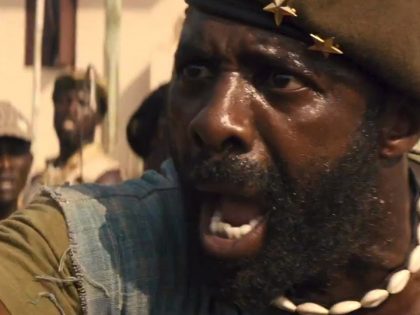The Nigerian way
The feature film, 'Kasala,' feels like a documentary film about the Nigerian condition and appeals to anyone who has ever been poor.

Screen shot from Kasala.
There is no doubt for any viewer who sees Kasala that the debut by Nigeria’s Ema Edosio is one hundred percent Nigerian fare. It reeks in the film’s dialogue—a mash of colloquialisms and local dialects—in the vividness of the actors’ eyes as they throw lines at each other, and in a few things to be explored further on in this piece. Unwittingly, the film doubles as a quasi-documentary on the Nigerian condition.
The plot which is easy enough, follows titular character TJ, who “borrows” his guardian’s car, with the intention of having a few hours of fun and returning it before the man returns. Sadly, or rather comically many things go awry. To think that the entire film plot could be resolved in a matter of minutes, had TJ and his three friends happened upon a small amount of money is the film’s true plug to the pain and irony that many Nigerians can tap into, and to a larger extent anyone who has ever felt any kind of poverty.
The film is held by a good ensemble. TJ and his trio make a convincing case for friendship. They fight, they rally when the times are hard, they take digs at each other and interact with absolute honesty. The performances could be described as a thesis in the Nollywood tendency to overact. The actor Gregory Ojefua calls it “not as much overacting as a basic expressive Nigerian way.” Nigerians are naturally performative people, which is why so much drama seeps into the acting culture. However, there is a difference between skilled overacting, and just overacting (see Jennifer Lewis in almost anything and/or Tiffany Haddish in Girls Trip). In Kasala, for the most part, the vividness of the performances is in perfect complement with the film’s visual tone.
Kasala is shot in a Lagos familiar to photographers and documentary makers, but often missing from many of the recent Nigerian theatre releases. In the bid to “tell our stories” and achieve global footing, there is a tendency in many Nollywood releases to package the country in a manner only mildly befitting of many Nigerians realities—a Nigeria of fancy apartments and constant electricity and almost zero traffic, which is a fraction of Nigeria, but ultimately misrepresentative of how the larger population lives. Kasala is shot not as exotic poverty porn, but as integrated into the lives of the characters. The result is a visual spectacle which truly utilizes the artistic merits: the shanties the characters duck through, the open markets, the refuse dumps, the roadside food service, the plastic, the betting points, the colors and madness of it all, provide excellent visual play.
Of note are the ways the story revolves as much around the central characters as the environment they find themselves in. The plot flexes just enough to give the supporting characters their own identities beyond adding to the protagonists’ journeys. Two stories run parallel. While TJ and his friends seek to undo the damage they have caused to Brother Taju’s car, the latter embarks on his own series of errands for the day. It is a convincing portrait with all the right notes of hilarity and sadness, as one watches him evade creditors, and chase debtors with the equal amounts of skill and frustration. There is a memorable scene of him riding on a motorcycle threatening obscene hilarities in pitch-perfect Nigerinisms if the driver will not stop to let him answer the call of nature. Of note also is a spectacular cameo from Gbenga Afolayan playing a shameless debtor.
The movie premiered in Paris at the Nollywood film festival and has been selected for screening at more international film festivals. Sadly, the distribution challenges confronting the Nigerian film industry ensure that many of the people this film was made for will not see it. We should spare a few thoughts for the Nigerians existing in a no less crazy reality who may never afford the cinema tickets or the cable subscription to enjoy it.




